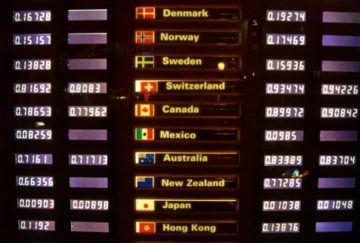 Arjun Jayadev and J.W. Mason in Boston Review:
Arjun Jayadev and J.W. Mason in Boston Review:
In 1919 John Maynard Keynes, like many Europeans, looked back at the prewar era of free trade as a kind of golden age. “The inhabitant of London,” he recalled,
could order by telephone, sipping his morning tea in bed, the various products of the whole earth, in such quantity as he might see fit, and reasonably expect their early delivery upon his doorstep; he could at the same moment and by the same means adventure his wealth in the natural resources and new enterprises of any quarter of the world and share, without exertion or even trouble, in their prospective fruits and advantages.
In the wreckage of World War I, it was hard to imagine a return to this borderless “economic Eldorado.” But today, it’s the relatively self-contained national economies of the mid-twentieth century that may seem like a lost world. To access the products of the whole earth, you don’t even have to pick up the phone; you can just log onto Amazon.
This return to—and surpassing of—prewar levels of economic integration has been paralleled by a revival of pre-Keynesian ideas about the international economy. The vast expansion of international trade over the past forty years is often presented as the result of simply removing artificial constraints—that is, as a victory of “free trade” over “protectionism,” a realization of the cosmopolitan and liberal ideals of the nineteenth century after the aberrant nationalism and state direction of the economy of the twentieth. This victory is often claimed as one of the great successes of the neoliberal era, one whose benefits are so obvious as to hardly need stating. One of us recently attended a panel on trade at a meeting of the American Economic Association, where the chair opened the discussion by saying, “Obviously, if you are in this room then you are for free trade, as much as we can get.” No one in the room seemed to disagree.
More here.
